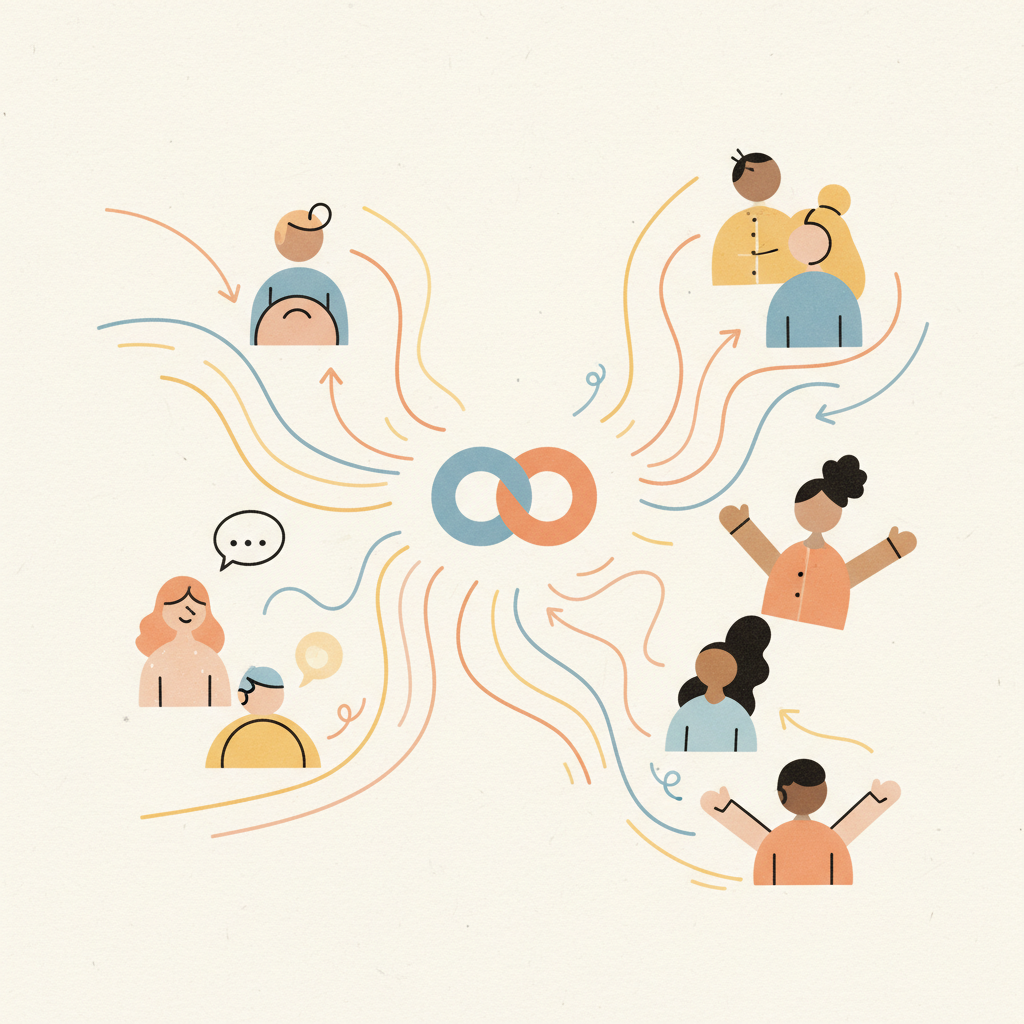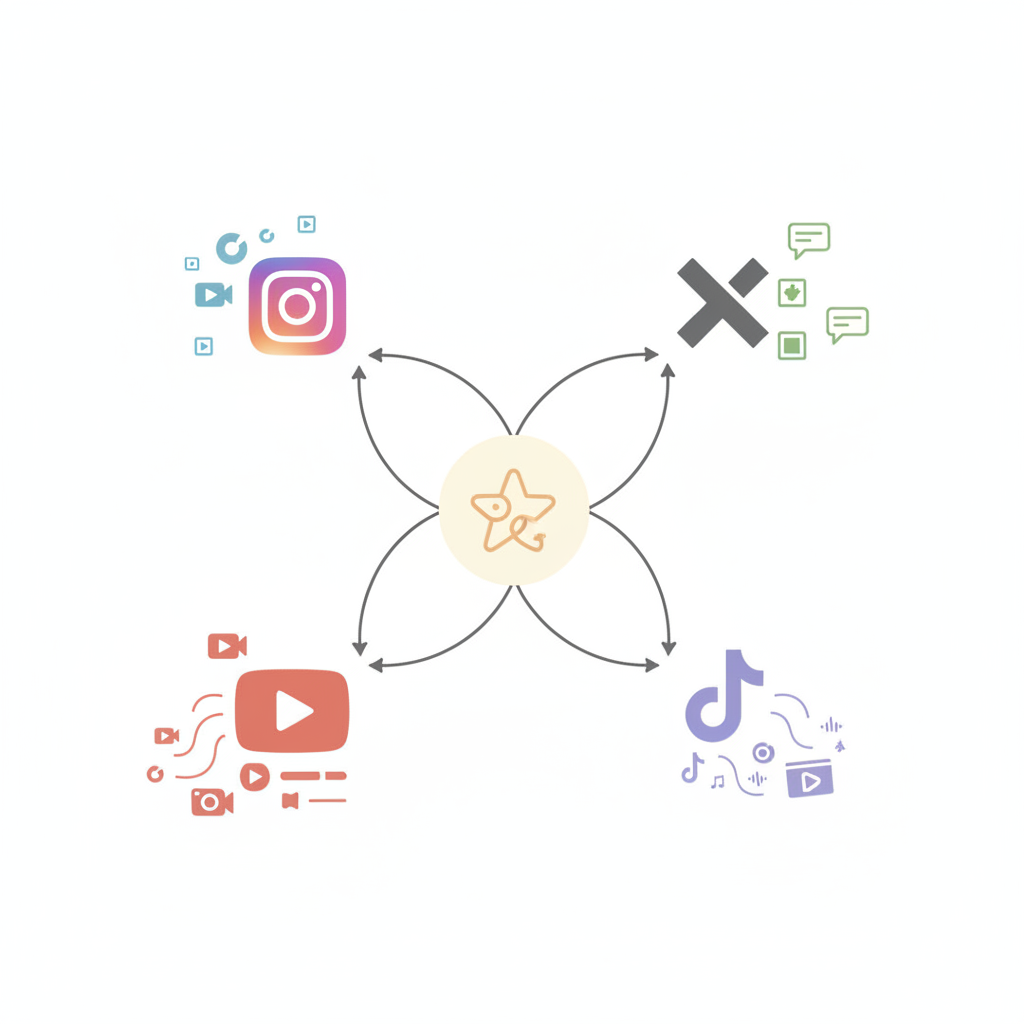In today's digital age, storytelling has emerged as a powerful tool for startup brands to connect with their target audience. With the advent of social media, entrepreneurs have a unique opportunity to showcase their brand's story and build a strong online presence. By leveraging social media platforms, startups can effectively communicate their brand's mission, values, and unique selling points, ultimately driving consumer engagement and loyalty.
Before diving into the role of storytelling in branding, it is essential to comprehend its true power. Storytelling has been ingrained in human culture for centuries, captivating audiences and creating emotional connections. It enables brands to go beyond traditional marketing tactics and establish a genuine connection with their customers. By telling a compelling story, startups can engage their target audience on a deeper level, fostering brand loyalty and advocacy.
Storytelling has always been a fundamental part of human communication. From ancient cave paintings to oral traditions passed down through generations, stories have played a crucial role in shaping our understanding of the world. They have the power to evoke emotions, inspire action, and create lasting memories.
When it comes to branding, storytelling takes on a whole new level of importance. It is not just about creating narratives; it is a strategic approach to brand building. When startups incorporate storytelling into their branding strategy, they can differentiate themselves from competitors and create a strong brand identity.
By crafting a unique and authentic story, startups can establish an emotional bond with their customers, positioning themselves as more than just a product or service provider. A compelling brand story goes beyond the features and benefits of a product or service; it delves into the values, mission, and vision of the brand.
Take, for example, the story of a small artisanal coffee company. Instead of simply highlighting the quality of their beans or the brewing methods, they might share the story of how they source their beans directly from farmers in remote regions, ensuring fair trade practices and supporting sustainable farming. This narrative not only creates a sense of connection with the customers but also aligns with their values of ethical consumption.
Storytelling in branding allows startups to humanize their business. It gives them the opportunity to share the challenges they faced, the lessons they learned, and the impact they aim to make in the world. By doing so, they can build trust and credibility with their audience, making them more likely to choose their brand over others.
The power of storytelling lies in its ability to influence consumer behavior. By connecting with customers on an emotional level, startups can tap into their desires, aspirations, and values, influencing their purchasing decisions. When consumers resonate with a brand's story, they become more inclined to support that brand, become repeat customers, and advocate for it within their networks.
Research has shown that storytelling activates different areas of the brain compared to traditional marketing messages. It stimulates the release of oxytocin, a hormone associated with trust and social bonding. This neurological response makes consumers feel more connected to the brand and more likely to engage with it.
Moreover, storytelling allows startups to create a sense of community around their brand. When customers feel a strong emotional connection to a brand's story, they are more likely to become brand ambassadors, sharing their positive experiences with others. This word-of-mouth marketing can significantly impact a startup's growth and success.
In conclusion, storytelling is a powerful tool that startups can leverage to build their brand and connect with their target audience. By crafting a compelling brand story, startups can differentiate themselves, establish emotional bonds, and influence consumer behavior. So, next time you think about your branding strategy, remember the power of storytelling and the impact it can have on your startup's success.

Social media platforms provide a perfect canvas for startups to share their brand stories with a wide audience. These platforms enable brands to create authentic content, engage with their customers, and build a strong online community. By leveraging the power of social media, startups can amplify their storytelling efforts and gain a competitive edge.
But what exactly is the impact of social media on storytelling techniques? How can startups effectively utilize different social media platforms to showcase their brand's story and engage with their target audience? Let's explore these questions further.
Each social media platform presents a unique opportunity for startups to showcase their brand's story and engage with their target audience. Let's take a closer look at some of the popular platforms and how startups can leverage their features:
By understanding the unique features and strengths of each platform, startups can tailor their storytelling approach to maximize engagement and reach.
Social media has revolutionized storytelling techniques, transforming traditional linear narratives into interactive and engaging content formats. Startups can now leverage a variety of features to create immersive experiences for their audience:
By adapting their storytelling techniques to the digital landscape, startups can capture attention, foster engagement, and drive conversions. The possibilities are endless when it comes to combining the power of storytelling with the reach and interactivity of social media.

While storytelling may seem like a creative endeavor, crafting a brand's story requires strategic thinking and alignment with the startup's goals. By following a structured approach, startups can effectively communicate their brand's story and establish a strong brand presence.
Storytelling is a powerful tool that allows startups to connect with their audience on a deeper level. It goes beyond just promoting products or services; it creates an emotional connection and builds trust. A well-crafted brand story can evoke feelings of excitement, inspiration, or even nostalgia, making customers more likely to engage with the brand and become loyal advocates.
The foundation of building a startup brand lies in creating a captivating narrative that communicates the brand's values, mission, and vision. Startups must define their unique selling points and develop a cohesive brand story that resonates with their target audience.
When crafting a brand story, it's essential to consider the startup's origin and the problem it aims to solve. By highlighting the challenges faced and the journey taken to overcome them, startups can create a relatable and inspiring story that captures the audience's attention.
Furthermore, incorporating the founders' personal experiences and motivations can add a human touch to the brand story. Sharing the passion and dedication behind the startup's creation can make the audience feel connected and invested in its success.
Once the brand's story is defined, startups can leverage social media to communicate that story effectively. Consistency is key in storytelling through social media. Startups should ensure that their brand's story is reflected in every post, caption, and interaction on social media platforms.
One way to communicate the brand story on social media is through visual content. Using images, videos, and graphics that align with the brand's narrative can help create a cohesive and immersive experience for the audience. Additionally, incorporating user-generated content that showcases how the brand has positively impacted customers' lives can further strengthen the brand story.
Engagement is another crucial aspect of storytelling on social media. Startups can encourage their audience to share their own stories or experiences related to the brand. This not only fosters a sense of community but also provides valuable user-generated content that reinforces the brand's story.
Furthermore, startups should actively respond to comments, messages, and mentions on social media, ensuring that their interactions align with the brand's tone and values. By engaging with their audience in a meaningful way, startups can build trust and loyalty, further amplifying their brand story.
In conclusion, storytelling is a powerful tool that startups can utilize to build their brand and connect with their audience. By crafting a compelling brand story and effectively communicating it through social media, startups can establish a strong brand presence and foster customer loyalty. So, embrace the art of storytelling and let your startup's brand shine!
While storytelling can have a profound impact on a startup's brand, it's crucial to measure its effectiveness. By establishing key performance indicators (KPIs) for storytelling, startups can evaluate the success of their efforts and make data-driven decisions to improve their storytelling strategy.
Startups can measure the success of their storytelling strategy by tracking metrics such as engagement rates, customer feedback, website traffic, and conversion rates. By analyzing these KPIs, startups can gain insights into the effectiveness of their storytelling efforts and identify areas for improvement.
Data-driven storytelling is the key to continuous improvement. By analyzing the metrics and feedback collected, startups can refine their storytelling strategy and optimize their content to better resonate with their audience. Regularly monitoring KPIs and adapting storytelling techniques based on insights ensures that startups are consistently delivering compelling narratives that drive brand growth.
The field of social media storytelling is continually evolving. Startups should stay ahead of the curve by taking note of emerging trends and adapting their strategies accordingly.
New social media platforms are constantly being introduced into the digital landscape. Startups should keep an eye on emerging platforms such as TikTok, Clubhouse, and LinkedIn Stories. By experimenting with these platforms and understanding their unique storytelling features, startups can reach new audiences and stay relevant in a fast-paced digital world.
As technology advances, storytelling techniques will continue to evolve. Startups should anticipate changes in content formats, such as the rise of interactive and immersive storytelling experiences through virtual reality (VR) and augmented reality (AR). Being adaptable to these changes will position startups at the forefront of innovative storytelling techniques.
In conclusion, storytelling is a powerful tool that startup brands can leverage to build their online presence and connect with their target audience. By intertwining storytelling with social media, startups can effectively communicate their brand's story, establish emotional connections with their customers, and foster brand loyalty. As technology and platforms evolve, startups should continuously adapt their storytelling strategies to stay relevant in an ever-changing digital landscape.
By submitting this form, you agree to our Privacy Policy and Terms & Conditions.